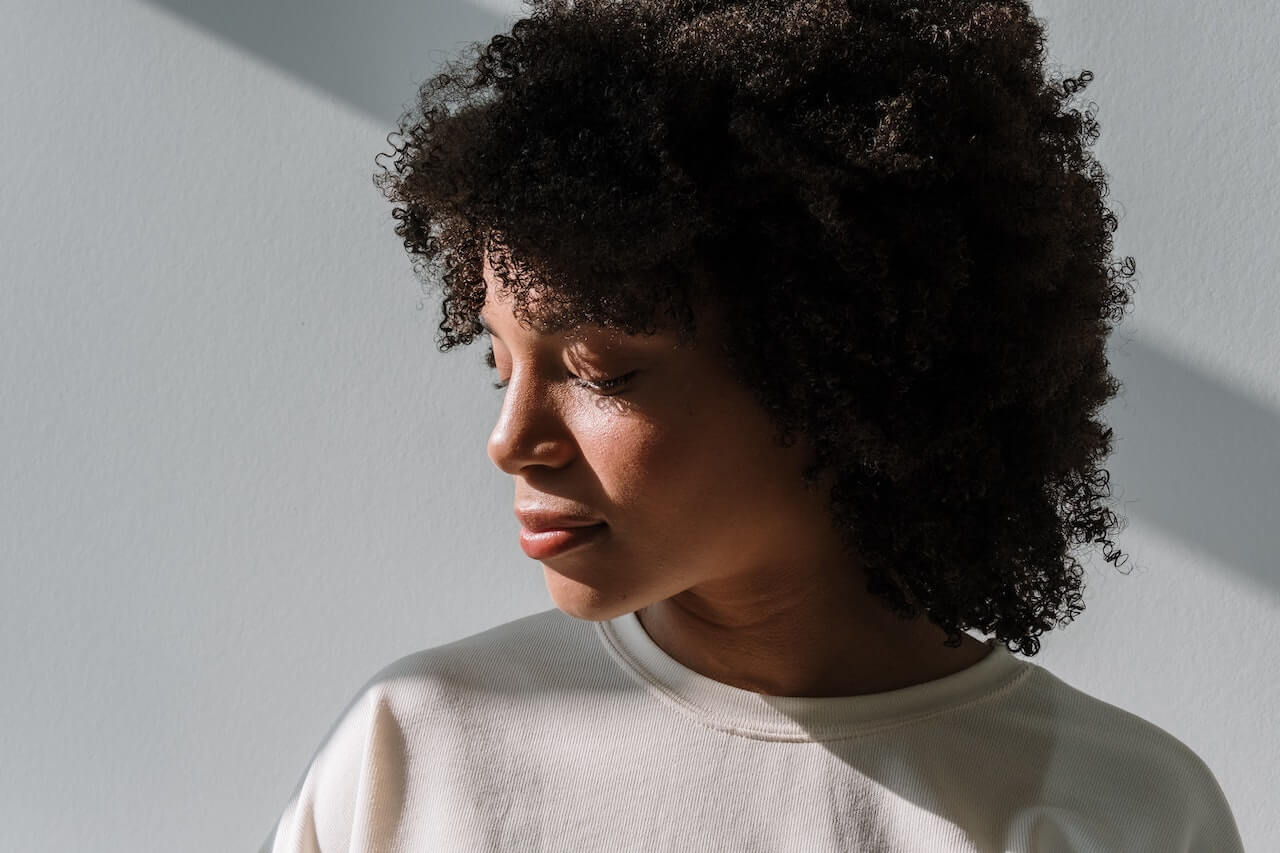Tossing and turning on the pillow at night can cause friction to your hair, leaving you with an unruly head of hair at best and hair that's more prone to breakage at worst. To keep your hair smooth and tangle-free, should you sleep with your hair up or down? And does it matter whether your hair is wet or dry?
Read on to find out — plus, learn what products you should be using to lock in deep moisture, fortify strands and fight frizz no matter what your nighttime hair routine is.
Nighttime After-Shower Routine for Healthy Hair
If you're the type who likes to shower at night, you might find yourself debating going to bed with wet hair or drying and styling it before you head off to dreamland.
#include-related-slider#
Sleeping With Wet Hair Isn't a Good Idea
In truth, going to bed with wet hair can increase your risk of developing fungus. Unfortunately, a moist scalp and a damp pillowcase can create the perfect breeding ground for yucky things to grow. Going to bed with wet hair can also increase the risk of breakage, as the hair's cuticle is more malleable and fragile when it's wet.
Additionally, if you sleep on wet hair and wake up with a knotty mess, your hair might require increased heat styling time to tame it, or you might even have to rewash it. Overwashing your hair strips the scalp of its natural oils, which can lead to dry hair and a flaky scalp, and overstyling your hair with hot tools can lead to breakage and damage as well.
Alice Rawling, a Los Angeles-based hair stylist and chief editor of Hairdo Hairstyle, said that sopping wet hair is an absolute no-no before bed.
Nighttime Care Routine After Washing Your Hair
"For wet hair, let it dry a little or give it a quick blow dry blast on the underside," Rawling suggested. "Apply a little leave-in conditioner to protect it and prevent frizziness. It helps keep the hair hydrated for healthy strands."
While you don't want to blow dry your hair every night, when you do, it's important to spritz your strands with a heat-protectant spray first to protect them. After drying your hair, try applying a few drops of natural oil, like pure marula oil, to the strands and ends of your hair, which can help tame flyaways and prevent frizz.
Rawling also said it's a good idea to add moisture to dry hair before bed, and she suggested giving the scalp a little love, too. "The best hair routine after a shower at night is to apply oil or hair serum, depending on your hair goals," advised Rawling. "Prep your hair and massage the scalp."
While you can easily massage your scalp with clean fingers, you can also use a relaxing scalp massage tool. To give your follicles and hair some added TLC, pair the scalp massage with a hair serum packed with phyto-actives.
What About a Hair Mask?
Rawling also suggested using hair masks to protect hair when sleeping.
Before using a hair mask, shampoo your hair first and skip the conditioner. After towel-drying your hair, apply the mask from the roots to the ends of your hair and massage into the strands. Cover your hair with a shower cap or bonnet before bed to protect your pillow and your hair. In the morning, rinse out the mask and dry and style your hair as usual.
For best results when using a hydrating deep conditioning mask, shampoo first and then apply a generous amount of the mask to towel-dried hair from scalp to ends. Massage into strands. Leave the mask on overnight for up to 10 hours. Rinse and style as desired!
Shop: HYDR-8 Essentials Kit
The Case for an Updo Before Bed
If you're not planning to use a hair mask before bed, you might wonder whether you should wear your hair up or down. When it comes to getting your beauty sleep, there is no hard and fast rule as to how you should wear your hair. It's more about protecting your hair to reduce friction so you don't risk breakage or waking up with a tangled mess. If you have long hair, you can pull your hair back or put it up.
If you choose to sleep with hair up, avoid metal or rubber hair ties, which can lead to breakage. Instead, keep any sleeping hairstyles loose and comfortable. Satin or bamboo scrunchies are a good alternative to more abrasive hair ties.
"Braids and loose buns are good hairstyles to prevent hair damage when sleeping," Rawling said.
Also: How to Wrap Your Hair and Why the Experts Think You Should
The Case for Sleeping With Your Hair Down
If you're the kind of person who simply cannot sleep with hair up or you have short hair, there are other options to prevent breakage and friction. "Use silk or satin bonnets or pillows," Rawling suggested.
Remember, friction can lead the hair shaft to break easily, so the less friction, the better. You don't have to put your hair into braids or a bun before bed, but you also don't want it rubbing against your pillow all night, either.
Cotton pillowcases are notorious for absorbing moisture from the hair, so apply hair serums before sleep to add moisture overnight. You can also switch out your pillowcase for one that's made of silk or satin to avoid friction and moisture loss.
Related: How to Keep Your Hair From Getting Matted While Sleeping
Final Thoughts
Going to bed with wet hair is not optimal on a regular basis. A one-off experience won't ruin your hair, but if you shower at night, an ideal routine is to dry your hair before hitting the pillow — either by occasional blow drying or gentle towel drying and air drying.
As for whether to wear your hair up and down, it doesn't matter. However, it is important to protect your hair strands from friction while sleeping. This can be done by putting your hair back into a loose ponytail, loose braid or loose bun with silk or satin scrunchies — or by sleeping with hair in a satin or silk hair bonnet. If neither of those options work, consider a silk or satin pillowcase.
The best case scenario is going to bed with hair that is completely dry, but that has had a hair mask or hair oil applied to provide moisture to the hair while you sleep. No matter how you wear your hair when you sleep, however, be sure to use hair products that hydrate and protect your strands. Your hair will be healthier for it!
#include-related-slider#
More From VEGAMOUR
- Shop: Aurora Culpo's Healthy Hair Picks
- Dry, Brittle Hair? Here's Some Possible Causes
- Should You Wash Your Hair After Working Out?
- Here's How to Get Softer Hair
Photo credit: Andrea Piacquadio/Pexels





















